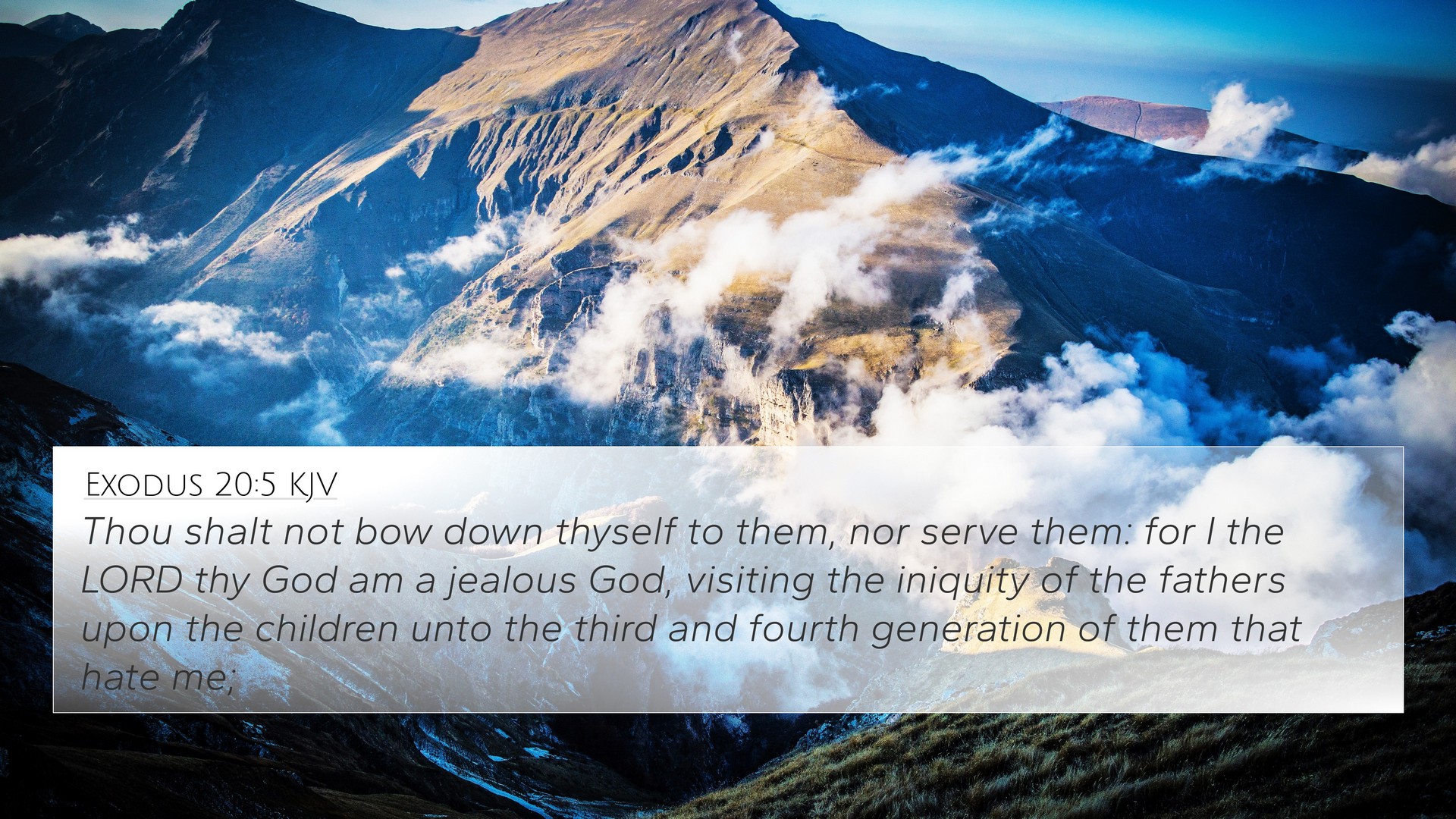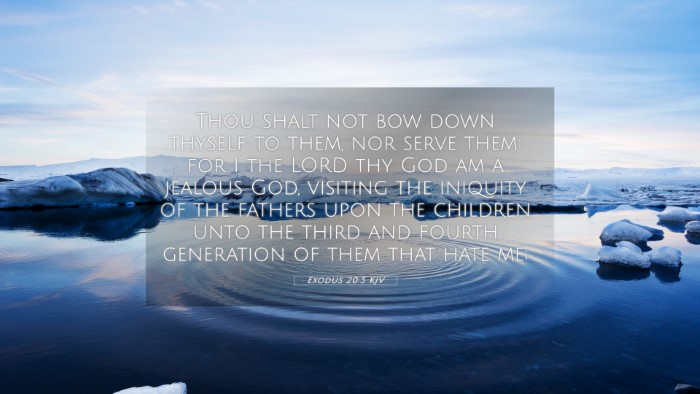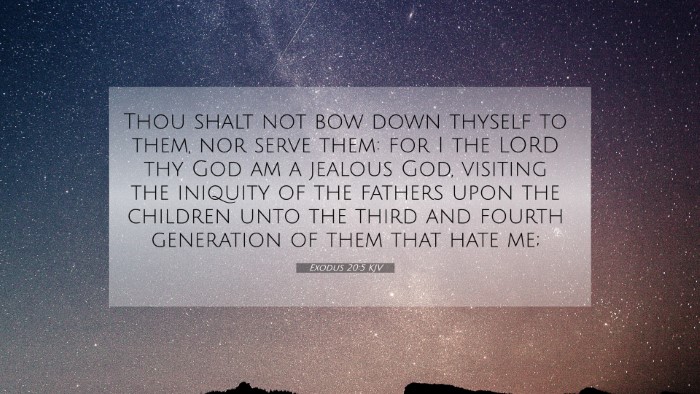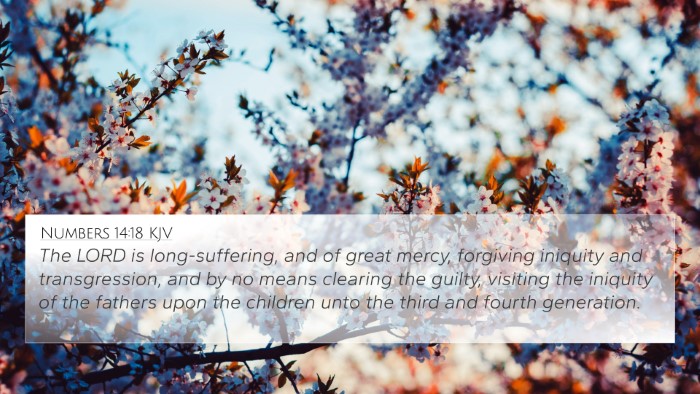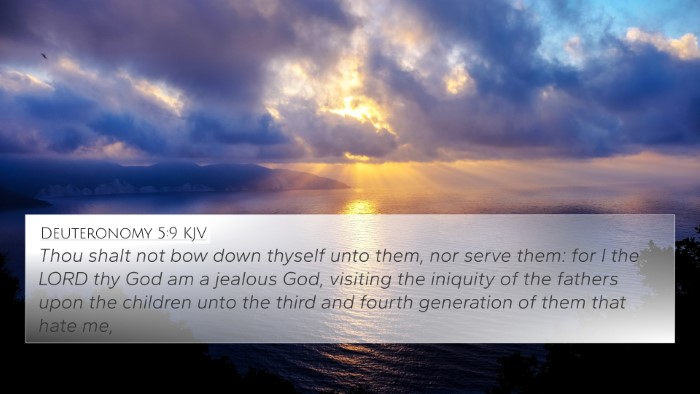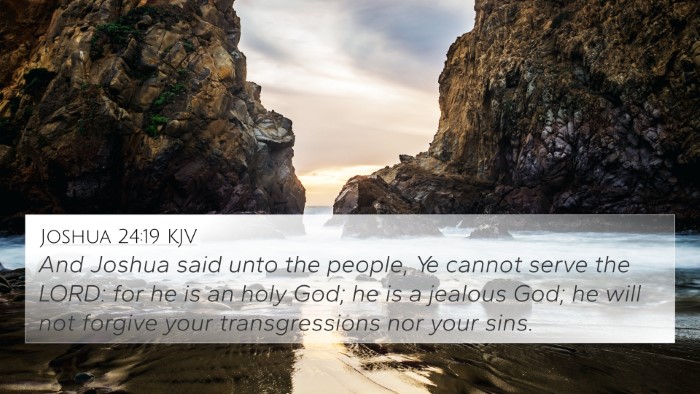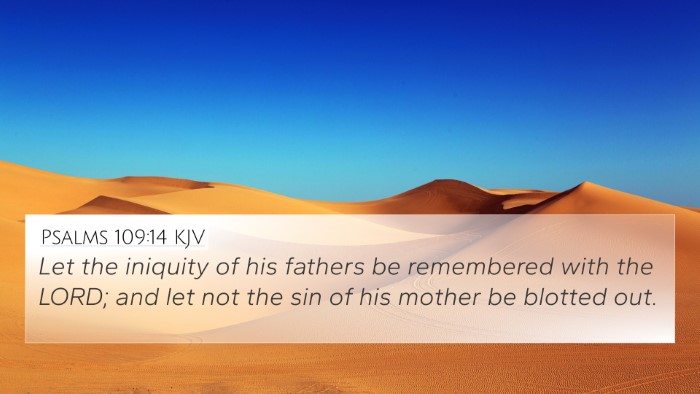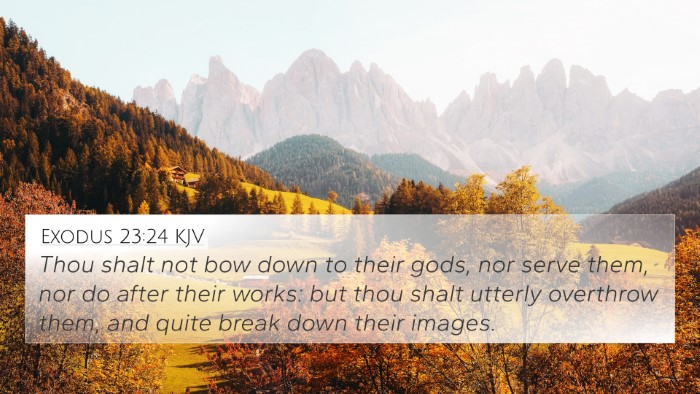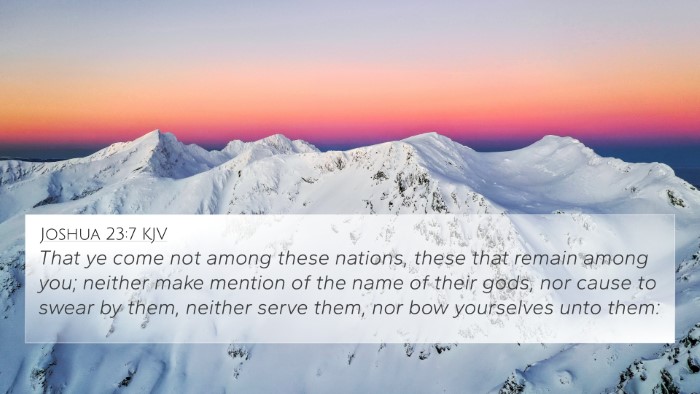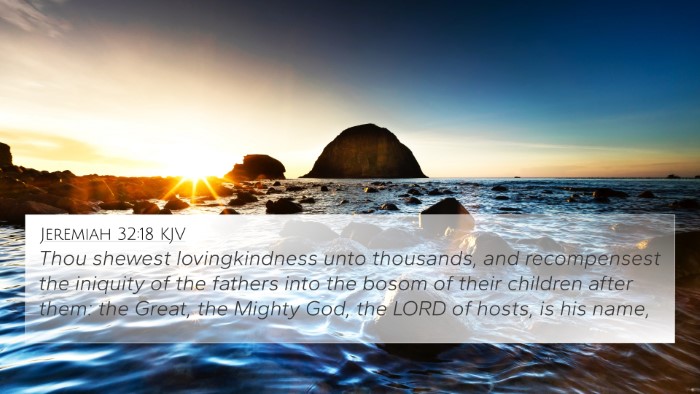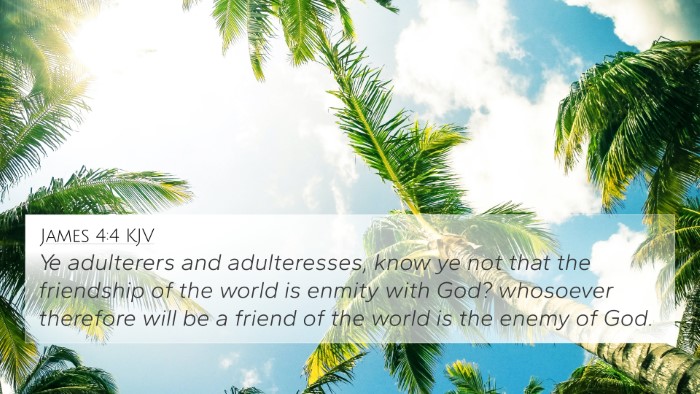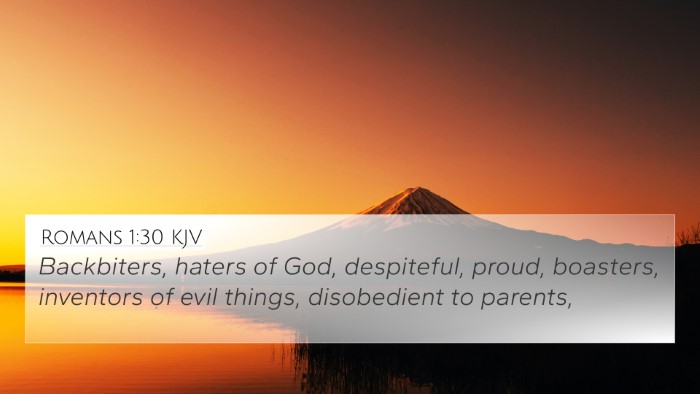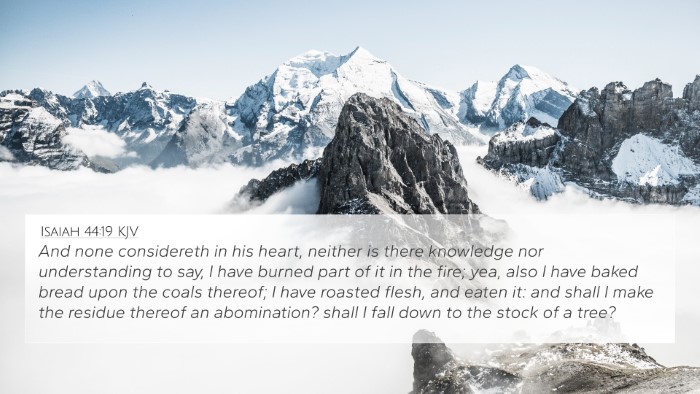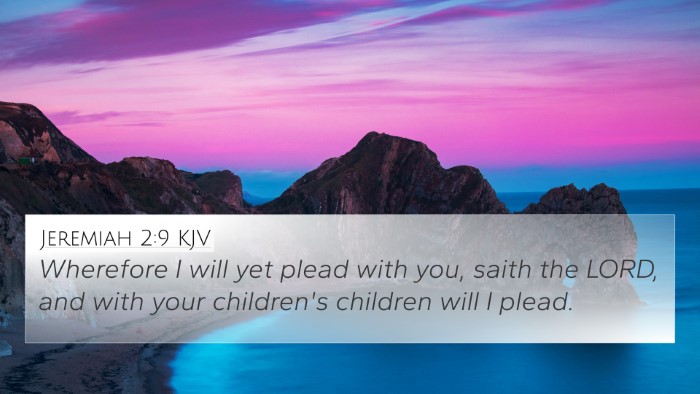Understanding Exodus 20:5
Exodus 20:5 states: "You shall not bow down to them or serve them; for I, the Lord your God, am a jealous God, visiting the iniquity of the fathers upon the children to the third and fourth generation of those who hate Me." This verse highlights the seriousness of idolatry and its implications for not only the individual but also their descendants. A comprehensive understanding of this verse can be attained through various public domain commentaries and cross-references.
Verse Meaning and Analysis
Idolatry and Divine Jealousy
Matthew Henry emphasizes that God’s jealousy signifies His intense desire for loyalty from His people. He detests anything that rivals His singular devotion. This is illustrated throughout the Old Testament as idolatry repeatedly led Israel astray.
Generational Consequences
Albert Barnes points out the gravity of the statement regarding the iniquity of the fathers being visited upon the children. This suggests that the sins of parents can have lasting repercussions, affecting multiple generations. However, this does not imply that God punishes innocent children but rather that the consequences of sin can create a legacy of iniquity extending through generations.
The Nature of God
Adam Clarke elaborates on the character of God as 'jealous,' illustrating that this term is indicative of His passionate commitment to His covenant people. This jealousy is intended to safeguard the relationship between God and His followers, prompting them to remain faithful and not engage in idol worship.
Cross-References for Deeper Understanding
- Deuteronomy 5:9-10 – Similar prohibition against idolatry with further emphasis on the consequences of sin.
- Numbers 14:18 – Highlights God's patience and the generational consequences of sin.
- Exodus 34:14 – Reinforces the claim of God being a jealous God.
- Psalm 79:8 – A prayer for the mercies of God, acknowledging the impact of collective sin.
- Isaiah 14:21 – Emphasizes the importance of accountability in generations.
- Ezekiel 18:2-4 – God’s judgment is based on individual actions rather than ancestral sin alone.
- Galatians 6:7 – The principle of reaping what one sows, applicable to generational consequences.
The Context of Exodus 20
In the broader context of the Ten Commandments, Exodus 20:5 stands as a firm warning against turning away from God towards false gods. The surrounding commandments establish a framework for ethical and spiritual living within the covenant community, stressing loyalty to God.
Thematic Bible Verse Connections
This verse is part of the overarching biblical theme regarding idolatry. Connecting this with various other scriptures solidifies our understanding of its implications:
- 1 Corinthians 10:14 – 'Flee from idolatry'; indicates the New Testament’s continuity of the command against idolatry.
- Revelation 21:8 – Lists idolaters among those excluded from the New Jerusalem.
- Romans 1:21-23 – Explores the consequences of failing to honor God and turning toward created things instead.
Inter-Biblical Dialogue
The interconnections provided through these verses reflect an ongoing conversation throughout Scripture about faithfulness to God and the consequences of disobedience. They encourage a deeper reflection on how one’s choices today may influence future generations. The 'thematic Bible verse connections' call for believers to acknowledge past lessons to avoid repeating mistakes.
Tools for Bible Cross-Referencing
To dive deeper into the scriptures surrounding Exodus 20:5, one can utilize various tools for Bible cross-referencing:
- Bible Concordance: Helpful for locating specific words and their occurrences throughout the Bible.
- Cross-Reference Bible Study: Facilitates thematic studies by tracing related verses.
- Bible Reference Resources: Includes study guides and commentaries for comprehensive insights.
Conclusion
The study of Exodus 20:5 reveals critical truths about God’s nature and expectations of His followers. The interplay between loyalty, consequences, and God’s enduring love underscores the importance of diligent study of the Scriptures, seeking connections and understanding to obtain a fuller picture of the biblical narrative.
Through cross-referencing biblical texts, we enable significant learning, revealing the interactive reality of God's word that spans history and covenantal promises. This approach encourages a faithful walk, mindful of the spiritual legacies we inherit and pass on.
